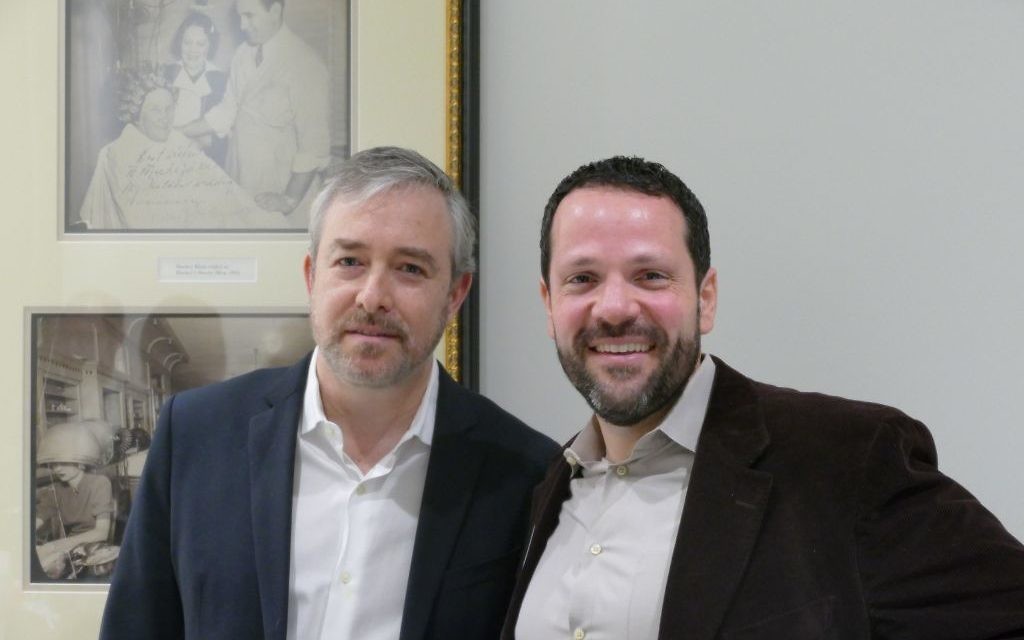Engagement, Not Guilt, Key for Future Donors
The Jewish Funders Network bridges the gap between giving and the issues that affect Jewish millennials.
Giving is a part of the Jewish community’s philosophy of tikkun olam (repairing the world), yet past strategies might not compel the next generation of donors.
The Jewish Federation of Greater Atlanta confronted that problem Friday, Feb. 3, during a breakfast discussion with Andres Spokoiny, the president and CEO of the Jewish Funders Network, an organization designed to help foundations and individual donors give in an impactful way to projects that are meaningful to them.
Spokoiny said philanthropy is driven by a force that can change the world and the community but can do harm if done in an isolated way. JFN aims to bridge the gap between giving and the issues that affect the Jewish community through networking.
Get The AJT Newsletter by email and never miss our top stories Free Sign Up
The Jewish Funders Network will hold its International Conference at the Grand Hyatt in Buckhead from March 19 to 21.
“We are trying to build an inviting, inclusive and thriving community that is focused on the future,” Jewish Foundation Senior Director Itai Tsur said. “Inviting JFN down to Atlanta to help educate us was a natural decision.”
In the past, Jewish communities rallied around specific movements — Reform, Conservative or Orthodox — and donated to causes that were important to them. Today, those movements aren’t always relevant to millennials who seek meaningful causes.
“There hasn’t been a change in Jewish ideology for quite some time,” Spokoiny said. “We don’t engage in finding meaningful ways to reach out to millennials even though the nature of the Jewish community has transformed. While lifetime memberships may have helped Jewish organizations in the past, today’s millennials seek more fluidity to come and go as they please. This applies to donating and where they may be in their lifecycle. Today, the center of society is the individual, not the community.”
In the 20th century, nonprofits based their philanthropic approach on a paradigm that supplied information from top to down, like an army general giving orders. “That may be good for certain industries,” Spokoiny said, “but it does not promote creativity or innovation.”
The Jewish community is stuck in the past. New organizations should focus on the model of the brain. Neurons are going in different directions all the time, and so should networking. “Only 14 percent of Jews today give out of obligation,” Spokoiny said, and rather than rely on Jewish guilt, organizations must articulate meaning and social interaction.
For an example, he pointed to Moishe House, which offers housing for small groups of young Jews, who then provide Jewish programming. “I don’t know how it works or why, but it’s self- generated and self-organized, which keeps millennials engaged in a meaningful way.”
Spokoiny said: “Jews are always looking for meaning, and, contrary to belief, millennials are no exception. They are the most value-obsessed generation but just care in different ways,”
He cited the example of the age-old question “Why be Jewish?”
“Most individuals will respond with either kinship or victimhood,” he said. “These are terrible answers and do not encourage millennials to give. Millennials do not feel victimhood or an exact affinity towards Israel. They perceive themselves as global citizens and do not wish to be tied down.”
To succeed in philanthropy, organizations must focus on the future and become internationally engaged. The Jewish way of thinking already embraces this rationale and has led to the funding of new ideas. Such Jewish innovation helps shift the response to the “why” question from victimhood to pride in contributions to humanity.
Providing empowerment is essential for any philanthropic endeavor, but so too are programs that offer meaning, value, engagement and growth. JFN examines what each funder values, connects partners and enables individuals to find complete solutions to issues.
“Your return on investment will be the difference between your output and long-term impact,” Spokoiny said.
What: 2017 Jewish Funders Network International Conference
Where: Grand Hyatt, 3300 Peachtree Road, Buckhead
When: March 19 to 21
Attendance: Open to JFN members and those eligible for membership based on donation levels or positions with grant-making organizations
Registration: $999 for full conference, $750 for two days and $400 for one day for members or $1,399, $1,099 and $575 for nonmembers through Feb. 13 and about $200 higher afterward; jfn2017.pathable.com or 212-726-0177, ext. 222





comments